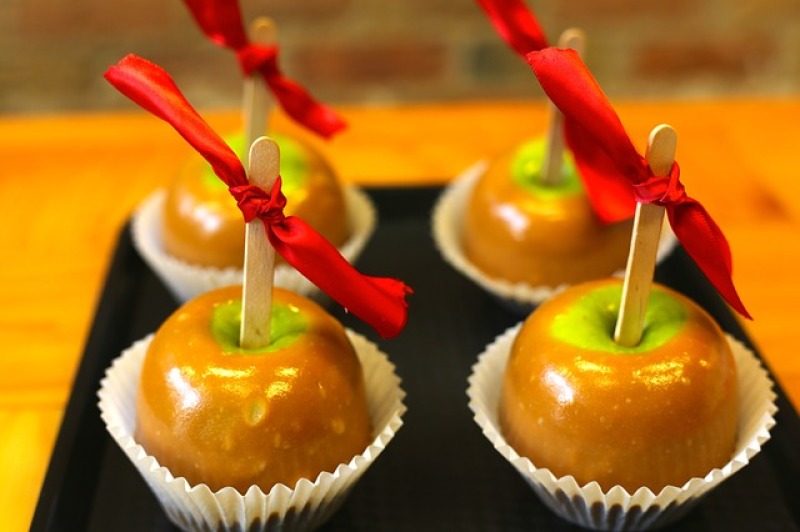
A new study details how caramel apples can turn into breeding grounds for listeria bacteria.
The study was conducted in response to a listeria outbreak that led to the deaths of 7 individuals in the U.S. earlier this year, Boston.com reported.
According to researchers from the University of Wisconsin-Madison's Food Research Institute, separately, apples and caramel are not food items that can host the growth of listeria. This is why a lot of medical experts were left puzzled after an outbreak linked to caramel apples affected 35 people across 12 states in January of this year.
Out of those who were infected, 34 were hospitalized while seven died.
This incident then led researchers to carry out the study.
"It just didn't make sense to us that people would get sick from apples," Dr. Kathleen Glass, one of the authors of the study said according to BBC. "So we wanted to investigate."
For the study, the team made their own caramel apples using Granny Smith apples. They inserted wooden sticks through the stems of the fruits and dipped them in hot caramel. One half of the treats were placed inside a fridge while the other one was left to cool at room temperature.
After studying both samples, they discovered traces of listeria bacteria on the caramel samples. Those inside the fridge had less bacteria growth than the unrefrigerated ones.
Upon closer inspection of the samples, they discovered that the development of the bacteria was caused by the process involved in making the popular Halloween treat.
The researchers explained that after pushing the sticks inside the apple, the juice from the fruit is released. The juice on the sticks, found between the apple and caramel coating, can then become a flourishing environment for listeria bacteria.
According to the researchers, the growth of the bacteria can still be prevented by caramel apple suppliers through various methods. These include carefully disinfecting the fruits, using bacteria growth inhibitors on the caramel, and using better temperature-control systems in the food item's storage containers.
Following the release of the study, Ohio-based retailer Kroger Co. announced that it has begun pulling out caramel apples from its grocery stores across the country. The company said it had voluntarily recalled its products to ensure the safety of customers.
"After reviewing the study, we have decided to voluntarily withdraw unrefrigerated caramel apples from our stores," Dr. Payton Pruett, the company's vice president of food safety said in a statement according to Food Safety News.
"While we believe the potential health risk is minimal, we are acting out of an abundance of caution on behalf of our customers," he added.
The study conducted by Dr. Glass and her team were published on October 15 in the journal mBio.

















